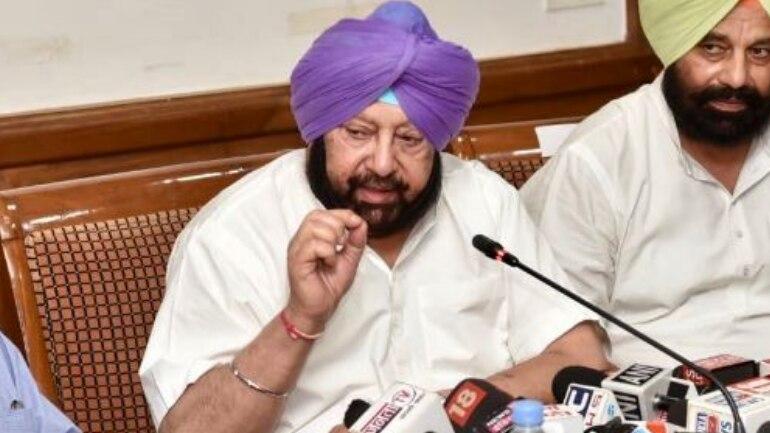JASWANT SINGH GANDAM / RAMAN NEHRA
India Post News Service
PHAGWARA: Expressing his anguish and anger over the unprecedented situation triggered by the growing air pollution in Delhi, Punjab Chief Minister Amarinder Singh wrote an emotional letter to Prime Minister Narendra Modi, underlining the need for evolving a consensus on tackling the issue, rising above political affiliations and regional considerations.
In his letter, the Chief Minister said that “no Indian, and definitely no person in Punjab, is oblivious to the misery of our brethren in the national capital, whatever many around the country might have been led to believe”.
Pointing out that his own children and grandchildren living in Delhi were currently sharing the plight of the lakhs of people in the national capital as a result of the toxic air enveloping the city, he said the prevailing situation “has exposed the hollowness of our claims of being a progressive and developed nation”.
“How can a country be called developed when its capital city has been reduced to a gas chamber, not by any natural disaster but a series of man-made ones?” he asked.
Making it clear that he had no intent of brushing his hands off Punjab’s responsibility in this tragic state of affairs, the Chief Minister said, however, that the entire country, including Delhi itself as well as the government at the Center, had allowed “this state of affairs to emerge and sustain, with our various acts of commission and omission”.
Admitting that stubble residue, supported by the winds blowing in the wrong direction, were contributing to the toxic levels of air pollution that prevail today in Delhi, the Chief Minister, at the same time, noted that data from several independent agencies had pointed out that large-scale industrial pollution, the traffic overload, the excessive construction activity taking place in Delhi were equally, if not more, to blame.
But, said Amarinder Singh, he took no solace from this data, nor could this blame game help any of them to “assuage our own guilt in a matter of such serious national consequence”. “The harsh truth is that while all of us are busy conveniently passing the buck to one another, Delhi’s people are reeling under excruciating misery, and are facing one of the worse ever health disasters in the nation’s, possibly the world’s, history,” he wrote.
Observing that “the situation continues to aggravate while “we all play ball over the people’s pain and grief,” the Chief Minister said the crux of the problem was that “we have persistently and foolishly refused to rise above political considerations to launch a collective search for a permanent solution”.
“The solutions each one of us, the so-called stakeholders, have been proffering from time to time are but knee-jerk interventions that translate into nothing more than a case of `too little, too late’ every time,” he wrote bluntly.
The Chief Minister further wrote that Punjab had tried to enforce the law against stubble burning to the maximum extent possible, and was even penalizing the farmers, “even though it goes against my conscience to punish a community that has suffered, and continues to suffer, at the hands of an ungrateful nation”. But that, he added, “does not really deter the farmers from resorting to burning of the paddy straw to keep their pathetic margins from falling further”.
Delhi and Haryana, too, were doing what they could, in their own ways, he pointed out, but added that the role of the Center had remained dubious in the whole affair, even though the central government was the biggest stakeholder of national prosperity.
Amarinder Singh further wrote that he had expected the government of India “to have taken the matter in its able hands long back, to find a holistic solution to this grave problem”. That, unfortunately, had not happened till date, despite even the Supreme Court expressing its concern on the rapidly deteriorating situation, he lamented.
The Chief Minister recalled that he had personally suggested to the Prime Minister and other union ministers, on several occasions, a separate bonus amount at the rate of Rs 100/quintal to facilitate stubble management by the farmers.
“Perhaps your government does not feel that is the right solution, which would explain its failure to respond positively to my request,” he added.
But then, asked the Chief Minister, “what is that solution that can end this grave problem once and for all?”
“Is it not your government’s task, Prime Minister, to search for that permanent solution, in consultation with all the other stakeholders, including Punjab, Delhi and Haryana?” he further went on to say.
Stressing the need for the Center’s urgent intervention, the Chief Minister concluded, in his letter, “After all, what is at stake goes way beyond our petty political ambitions.”







